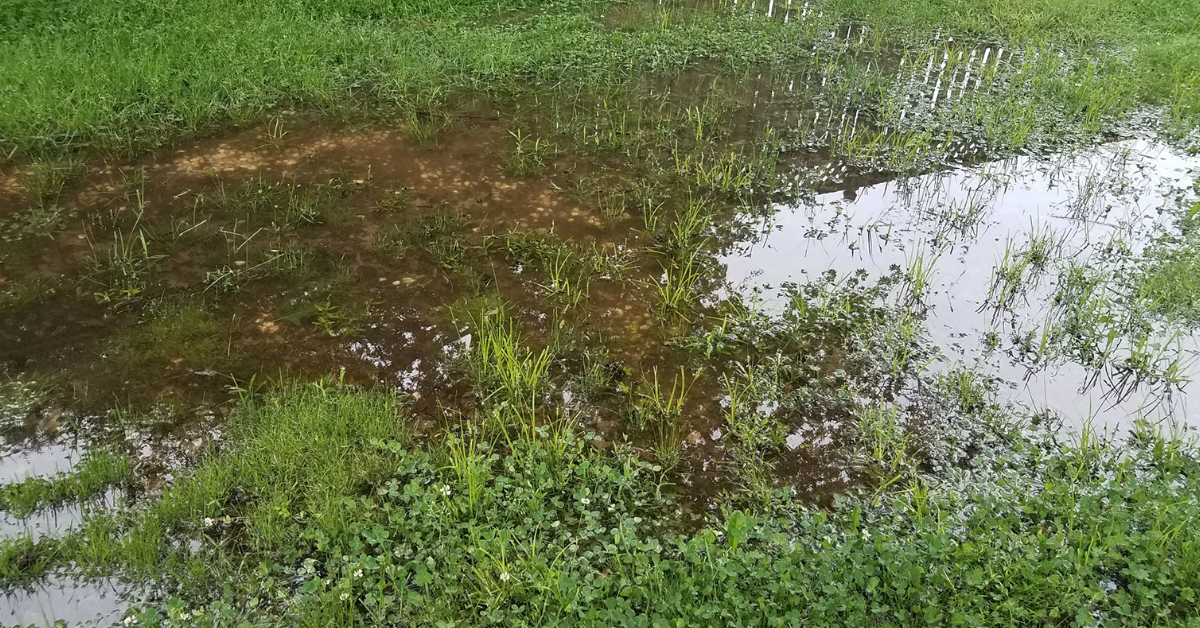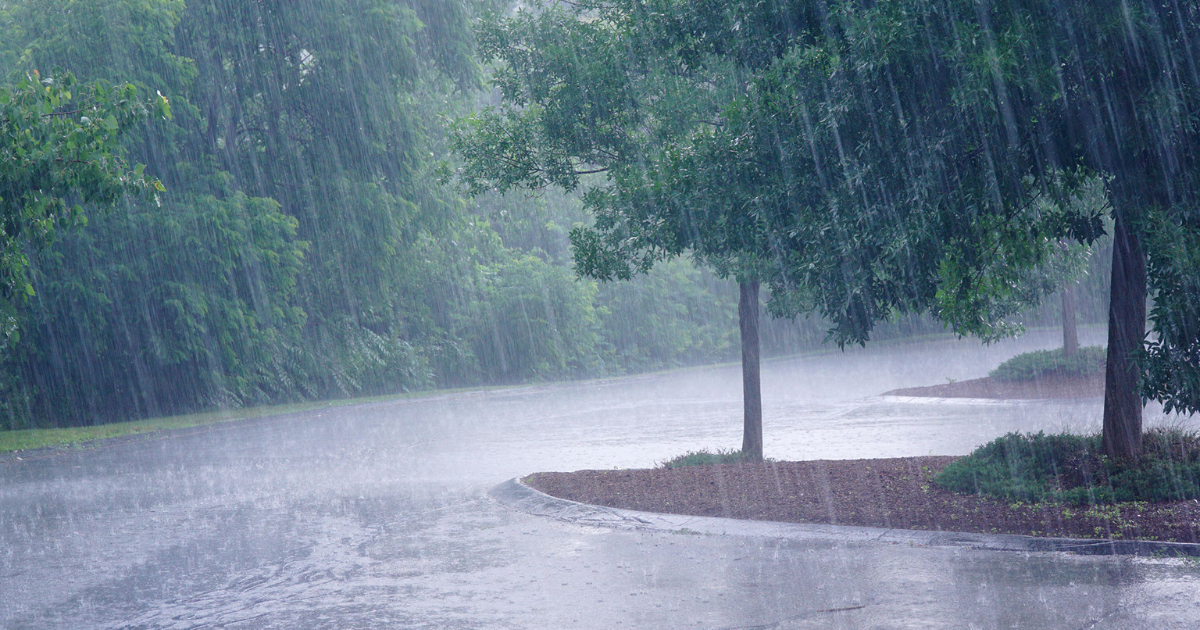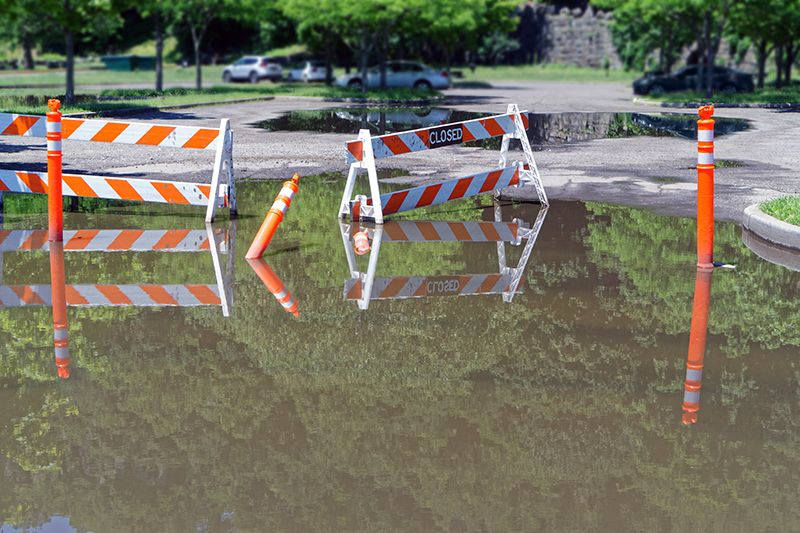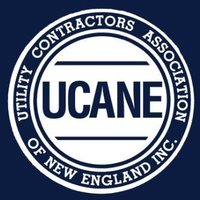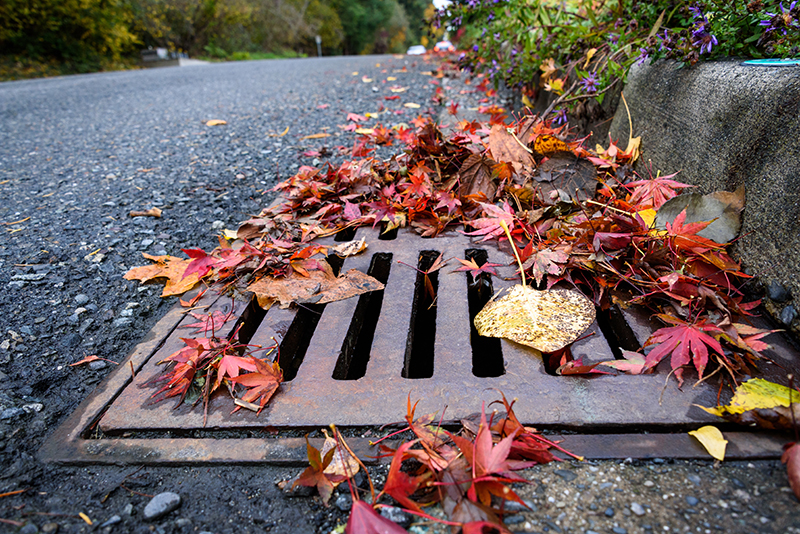
The storm drains located outside of commercial properties may not seem as important as the drains inside the building, however nothing could be further from the truth. In fact, storm drains are an import piece of the plumbing puzzle that certainly should not be ignored. Storm drains work in a similar manner to the sewer line. The sewer line removes waste and wastewater from inside the property and distributes it to either a tank buried underground at the property, or to a main sewer line located under the main street where it will travel to a processing plant.
The storm drains remove rainwater and snow runoff from the exterior of the building and distributes the water to either a retaining pond located on or near the property, or directly into local waterways. In essence, the stormwater and snow runoff are going directly back into the environment. That means commercial property owners are responsible for the items that enter into the storm drains that are located on their property. The following information will provide you with the items that should never go down the storm drains at your commercial properties.
Item #1: Dead Leaves
Did you know that dead leaves are one of the main culprits that clog storm drains and cause floods? That means it is incredibly important to have all dead leaves removed from your commercial property in late autumn before the ground freezes. Leaves should always be raked away from the drains. When leaves are not removed in the proper manner, and are left to flood your storm drains, they tend to form mats on top of the drains. These mats block rainwater and snowmelt from entering into the storm drains. Dead leaves should be bagged or vacuumed up by a professional.
Item #2: Garbage
Pieces of garbage can easily clog storm drains and cause flooding. It certainly goes without saying, but never dump garbage down the storm drains or allow anyone to do so. In addition, it is always a good idea to make sure that all garbage disposal containers are secured tightly, particularly on windy days. You do not need trash flying out of the receptacle. If you utilize garbage cans, make sure to keep the lids sealed tightly. Bungee cords are a great way accomplish this.
Item #3: Lawn Trimmings
A great deal of landscapers clean up lawn trimmings by blowing them into the street, where they eventually enter into the storm drains. If you have grass at your commercial building, never allow them to do this. Lawn trimmings can easily clump up when wet and end up clogging the storm drains, which again, will cause flooding. On the other hand, lawn trimmings can be used for compost, so if you have a garden or a lot of flower beds they can come in handy. Otherwise, they should be bagged and removed from your commercial property.
Item #4: Sand And Salt
The winter is fast approaching, and most of the commercial snow removal companies will use a combination of sand and salt to melt the ice that forms on the walkways and parking lot at your commercial property. Any residual sand and salt should be swept away once the snow and ice has melted. Otherwise, it will enter into the storm drains and cause clogging.
If you have any questions about catch basin maintenance, or would like to schedule service we are happy to help. Jolin Paving & Excavating, Inc. is your New England connection for a vast variety of environmentally related services. Our company has been serving Boston Massachusetts, Southern NH, VT & ME as well as Northern CT & RI since 1952. Please Contact us to learn more today.
continue reading

